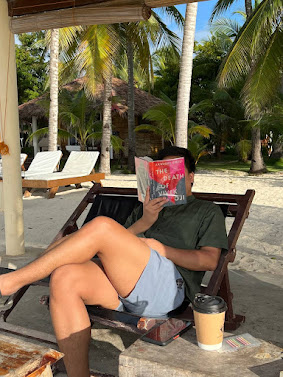Three years after its premiere in the 2013 Cinemalaya, Jerrold Tarog’s Sana Dati continued to cause a buzz amongst casual movie-goers and film critics, especially when a local TV channel showed a re-run of the said film. Everyone seemed to love this movie, despite a plot that felt all too familiar: a girl is about to marry a man she doesn’t truly love when another strange man comes a-knocking and reminded her of her one, true love. Even the title itself – “Sana Dati – seemed like the cliché choice for another unoriginal film.
Oh, yes, clichés. Let me divert a moment to talk about these. A friend once shared to me his growing despise with that word, and that concept. He reasoned: nothing can ever be original. An idea would look novel and inventive, but really, if examined closely, it would still bear the shadow of an old, much earlier notion or work. So, he concluded, that to say something is “cliché” is unnecessary, because almost everything is a cliché – an unoriginal idea. Though, I still rebutted, as I’m one of the people who would call something such, that I would pertain something a cliché if it is already a tired concept. And we settled with a compromise after more fiery exchanges of ideas and arguments.
Anyway, back to the topic on hand, this indie had the formula of another cliché, romantic Filipino movie. But the film elevated itself, and became so much more. With Tarog’s array of skills (as he directed, wrote, produced, and even composed the music of the film), Sana Dati became an unforgettable treat, as it also ended up bagging the Best Film award from the 2013 independent film festival.
The film revolved around Andrea’s (portrayed by the spectacular Lovi Poe) wedding and the preparation done beforehand. The groom was still nowhere to be found, but it’d be expected to be Benjamin Alves’ character Andrew, because just a few minutes and a title card ago, he was seen proposing to Andrea. Anyway, the film skipped to Paulo Avelino’s Dennis introductory scene: he was the videographer for the wedding. But one could tell some huge conflict would arise when Dennis began scratching the name on some of the calling cards he held.
When Avelino and Poe’s characters met, it was awkward. The bride was experiencing stomachaches, and the bride’s sister brought the wrong shoebox, causing the bride’s mother to run around frantic. It’s just mere hours before the wedding, people! Dennis was shady: a one-man videographer team? And he seemed like he didn’t know how to use the camera. But Andrea was even shadier: she looked like she didn’t want to talk about her husband-to-be for the nuptial video. And when the groom was finally revealed to be TJ Trinidad’s Robert Naval, well, I could just imagine the audience pleasantly shocked: “Where is Benjamin Alves?”
For his wedding video, Robert talked about how he proposed to Andrea. He shared the story: Andrea went away for Bangkok for a year. When she came back to the Philippines, she asked the patient suitor to ask her to marry her, perhaps, she would agree. So Robert did ask, and Andrea did agree. If not, then, why would they be preparing for a civil ceremony, right? But the Bangkok trip was a mysterious device used for the story. On one scene, three of the guests were seen arguing whether it was Bangkok, or Jakarta or Alaminos where Andrea went for a year. All these were talked about in hushed voices, as if afraid to disturb the past, or cause a stir. But well, Dennis was the man for the job, as he seemingly purposely left his camera for curious Andrea to play with, and by doing so, she found out who Dennis really was. Thus, connecting the present with flashbacks featuring Alves.
What happened two years ago (as the title card declared) in Alaminos, Pangasinan was like some of Tarog’s shots: obscured by some dark curtain covering the light. But like the same way Avelino’s character drew the curtains behind Andrea to provide more lighting for the video, it was his character too who drew the curtains covering the past. And the audience was treated with an iconic moment between Avelino and Poe. Their scene together on the rooftop was visually stunning, and quietly poignant. They talked about the man they both knew, and shared.
Other Points:
- Tarog’s directing was precise and direct. He’s not one to film a scene that wouldn’t push the film forward. Though, some of his unexpected flashbacks were both pleasant and uncalled for. But aren’t blasts from the past can actually be both pleasant and uncalled for?
- As Tarog also wrote the screenplay, it’s hard not to point some of the plot holes in the film. But I decide not to focus on those.
- Gee Canlas and Nico Antonio who portrayed the bride’s best friend and the master of the ceremony, respectively, became the comic relief of the film and I loved those two!
Despite being created on the same mold of the usual and tired Filipino romantic drama films, Sana Dati became an impressive indie film with Tarog’s undoubtedly amazing skills, and the immense talents of the actors featured in it.
Overall Rating: 8.5/10










0 Comments